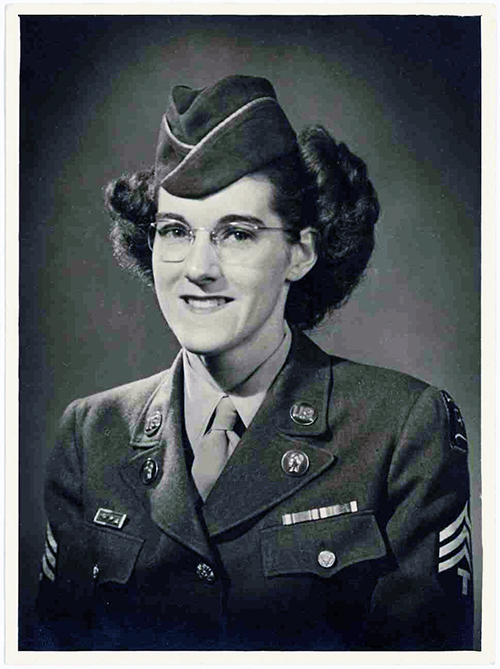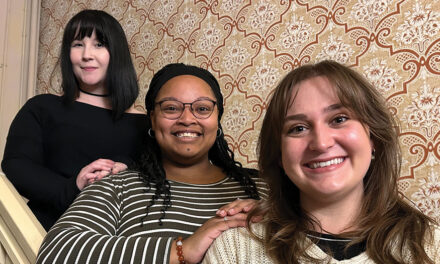Newton, NC – The Historical Association of Catawba County has been selected to host the Smithsonian Travel Exhibit, “The Way We Worked,” as part of the Museum on Main Street (MoMS) project, a collaboration between the Smithsonian Institution’s Traveling Exhibition Services (SITES) and North Carolina Humanities Council – a partnership to bring exhibitions and programs to rural cultural organizations. A program aligned with “The Way We Worked,” a  Veteran Roundtable Discussion, will be held on Saturday, August 11, 2pm, at the 1924 Courthouse in Newton. The Veteran Roundtable will feature eight local veterans who served in WWII, Korean War, Desert Storm, Vietnam, Gulf War, Iraq and Afghanistan.
Veteran Roundtable Discussion, will be held on Saturday, August 11, 2pm, at the 1924 Courthouse in Newton. The Veteran Roundtable will feature eight local veterans who served in WWII, Korean War, Desert Storm, Vietnam, Gulf War, Iraq and Afghanistan.
Richard Eller, historian in residence at the Historical Association of Catawba County, will moderate the roundtable sponsored by Abernethy Laurels, senior living community in Newton. Featured veterans include:
Lou Grandmaison, WWII; Robert Deneault, Korean War; Larry McMullen, Vietnam; Joe Dillard, Vietnam; Dennis Bennett, Vietnam; Brad Durham, Operation Desert Shield/Desert Storm; Joseph Chavez, Gulf War; Tim Moore, Iraq/Afghanistan.
Veterans will share their story on returning back to civilian life following their service to our country. What work did they find? Did they learn skills in the service that helped them get a job? Did they utilize the GI Bill? What were their challenges and successes? Learn a piece of history and how these veterans immersed themselves back into society.
The traveling, “The Way We Worked,” Smithsonian exhibition will visit six communities in North Carolina before it returns to the Smithsonian in Washington, DC. The Historical Association of Catawba County will host the exhibition August 10 to September 18, 2018.
Workers are the backbone of American society, investing themselves physically, emotionally, and intellectually in their work. “The Way We Worked,” exhibition is adapted from an original exhibition developed by the National Archives, explores how work has become a central element in American culture. It traces the many changes that have affected the workforce and work environment over the past 150 years, including grown in manufacturing and technology. The exhibition includes historical photographs, archival accounts of workers, film, audio and interactives, to tell the compelling story of how work impacts our individual live and the historical and cultural fabric of our communities.
The Historical Association of Catawba County will highlight Catawba County industries and the people that work here in a complementary exhibition, “Catawba: Innovation at Work.”
Learn more about the Historical Association of Catawba County or the “Way We Worked” at www.catawbahistory.org, by calling (828)465-0383 or by visiting the History Museum at 30 North College Ave. in downtown Newton. Regular business hours are 9am to 4pm Tuesday through Saturday. Special extended hours during the SITES exhibition will be 9am to 8pm Monday through Saturday. Admission is free.
Photo: Lou Grandmaison, veteran panelist







